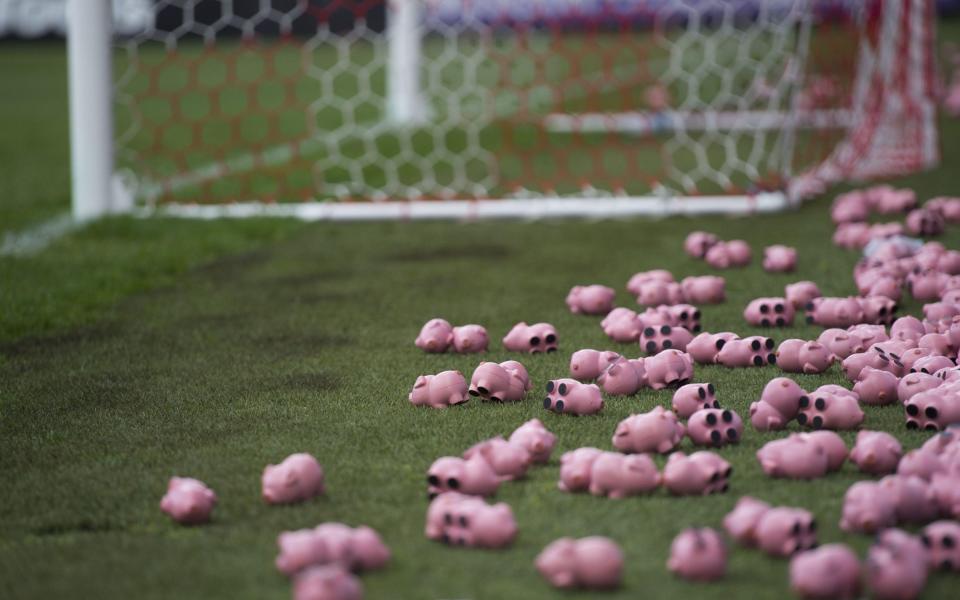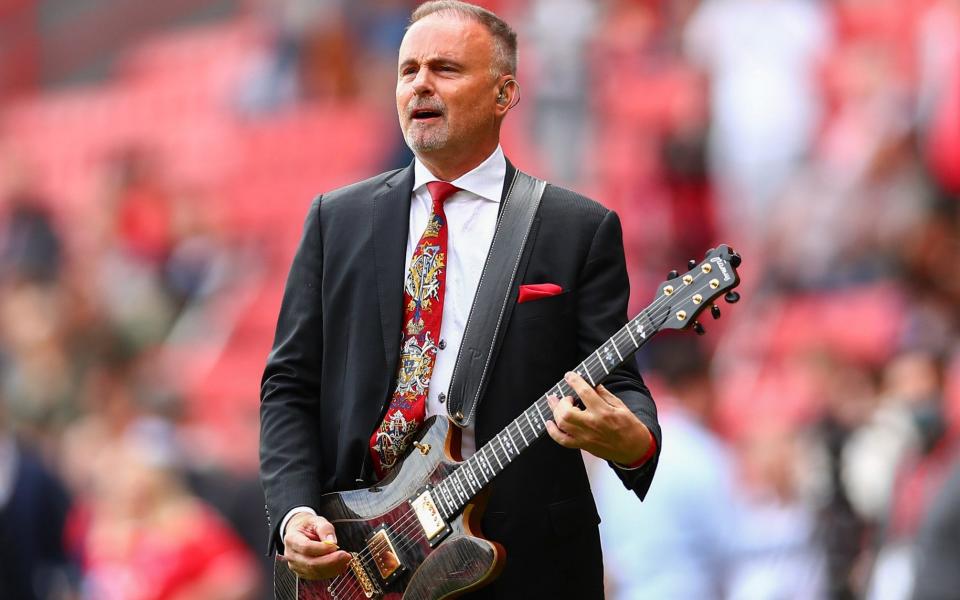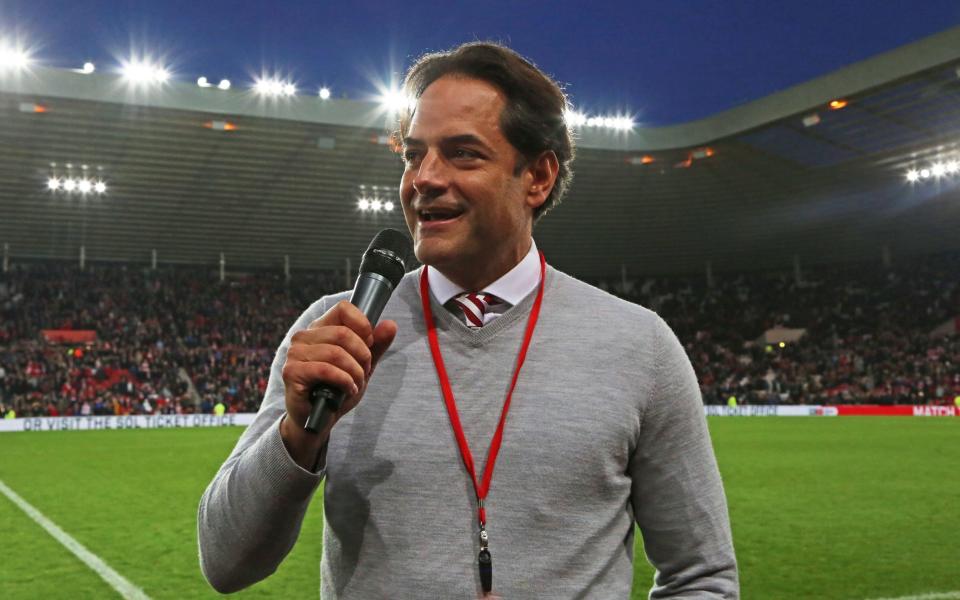Charlton glimpse hope after dark times – with reluctant reality TV star at the helm

Since relegation from the Premier League in 2007 every Charlton Athletic supporter has their own personal low point. There are plenty of options to choose from.
For Jen Offord, author of The Year of the Robin, about the pandemic-affected 2019/20 season, it came shortly before football was paused. “I remember going to the last home game before the Covid lockdown, against Middlesbrough,” she says. “We lost 1-0. That match was rubbish, it was the only one where I actually resented being there, waddling down six months pregnant to watch. At that point the writing seemed to be on the wall.”
It was, insofar as Charlton suffered their third Championship relegation in 12 years. At that point the threat to the club seemed existential.
Charlton were loosely in the hands of holding company East Street Investments, an Abu Dhabi-based group that had bought the club for £1 from Roland Duchatelet that January. But three of its members failed the fit and proper owner’s test, so the group and seemingly the club was sold to Paul Elliott, a businessman with no previous football experience. Charlton’s official website called him their new owner in June 2020.
Enter Dane Thomas Sandgaard, who thought he had bought the club directly from ESI majority shareholder Tahnoon Nimer. After some court wrangling, Charlton’s website ran another new-owner story by September, anointing Sandgaard.
Sandgaard was more popular than his predecessors, despite his habit of strolling onto the pitch before games, strapping on an electric guitar and playing along to Valley Floyd Road to the evident discomfort of fans. Duchatelet was in charge for five years from 2014 and is still the owner of the Valley and Charlton’s training ground. Things got so bad during his reign, a muddled attempt at a multi-club ownership model, that a game against Coventry City in 2016 was delayed because protesting fans had thrown hundreds of toy pigs onto the pitch.


So just the four owners in the past four years, and before them Tony Jimenez and Michael Slater, who bought the club from Richard Murray in 2010. He had steered Charlton through homelessness, a return to the Valley and seven largely joyful Premier League years. They were the model club of their time.
Hope for a better future arrives with any new owner. SE7 Partners took over in July, a consortium of seven overseas investors, some even with football on their CVs. For the first time in years a proper structure has been put into place, with a chairman and technical director appointed. The talk is of steady improvement and promotion from League One, but scepticism is to be expected.
“We need to be measured about this,” Heather Alderson, vice-chair of Charlton Athletic Supporters Trust, says. “We’re supporters who have been through this four times, we are not going to be jumping up and down on pogo sticks going ‘whoopee’.”
They have had a poor start to the season, with four defeats after a win on the opening day, but there is potential here. The Valley is not state-of-the-art, but larger than Selhurst Park, which has hosted Premier League football for a decade. The academy is well thought of. Manager Dean Holden, while some way behind former players Lee Bowyer and Chris Powell, seems to grasp the spirit of the club.
It is tougher to untangle what constitutes success. Rick Everitt was editor of the fanzine Voice of the Valley and worked for Charlton in various roles for 14 years. “What I don’t understand is why anyone would pay £12 million for the business in the state that it’s in and how they expect to get that money back unless they’re proposing to make very substantial investment,” he says.
Charlie Methven describes himself as “a slightly unenthusiastic frontman,” of the new ownership group. He says they have no intention to sell if promoted “our investors are in this for the long run”. His is a small stake in SE7 but his role is a bridge between the executives and investor group, as well as trying to bring money in. Previously he was executive director at Sunderland, a spell documented with mixed results in the Netflix documentary Sunderland ’Til I Die. Many Sunderland supporters have warned Charlton to proceed with caution.

What you cannot accuse Methven of is playing to the gallery. There is a script most new owners follow: establishing one clear figurehead; mentioning they are mere custodians of the club; stating the aim to become established in the Premier League.
There is little of that in our hour-long conversation, instead emphasis on fixing what is deficient such as a creaking ticketing system and over-long queues for food and drink. “All these things really matter,” he says. “The clubs that are flying, you go to them and everything just seems effortless. When you’ve had a prolonged period of failure at a club, the dry rot seeps into the walls.”
Whatever improvements can be made, there is no avoiding the intimidating financial climate outside the Premier League. Methven says it is impossible for Charlton to be a successful operation in League One, but they have spent nine of the past 14 seasons there. Despite cost-cutting and what many fans perceive as chronic under-investment, the club is still losing too much money. The solution, he says, is getting operating losses down to £1-2 million per year and aiming to make a net profit in the medium term on player trading.
“You will do that if you have any kind of competence at all, and particularly if, like Charlton, you’ve got one of the most productive academies in the country,” he says.
All of this depends on promotion. “I think success looks like Charlton Athletic stabilised in the Championship with a business model which enables it to compete in the top 10 of that league.
“Between number eight in the Premier League, and probably about number 10 or 11 in League One, it is just a ladder that teams go up and down. The question is, have you built into your contracts and your broader revenue base the wriggle room to ensure that as you go up and down you don’t put yourself in any huge difficulties?”
Increasingly these are the things football supporters need to be aware of. There are still some fans who call on clubs to buy new players endlessly, regardless of how poorly that usually ends. Just as many are fluent in FFP, able to understand a set of accounts and confident about using the phrase “net spend”. An increased awareness of finances is useful, but it makes rallying behind your club in the old emotional way ever-more difficult. While many owners choose to ham up that side, again Methven resists. “No one should imagine that running a club in an emotional or unbusinesslike way is somehow altruistic. It just ends up with lots of people in floods of tears.”
Given their seven-year exile from the Valley from 1985, Charlton fans are understandably uncomfortable with not owning the stadium. This, Methven says, is a nice thing to have rather than a necessity. “It’s an interesting parallel to say that a club can’t succeed if it doesn’t own its own stadium. I wonder if anyone’s told Man City or West Ham?”
He accepts that investing in a stadium is easier when you own it and “100 per cent understands” the depth of feeling among Charlton fans. But he also plays down concerns about the stadium being in the hands of Duchatelet and only leased back to the club, a deal that expires in 12 years.

“I am deeply sceptical that Greenwich Council will become the first council in the whole country to give planning permission to put residential houses on their home football stadium,” he says.
“The fans, the current ownership of the club, have a mutual interest in reuniting the stadium with the club, but that has to be done in a way that doesn’t endanger the future of the club itself. If the club pays an uneconomic price for something which it doesn’t actually need, that will endanger the future of the club itself.”
For now the more urgent matter is improving results and building some momentum. Highly rated forward Miles Leaburn, son of former Charlton striker Carl, is injured so seems likely to stay despite rumoured interest from the leagues above. Teenagers Zach Mitchell, Karoy Anderson and Deji Elerewe are showing promise. Yet this still feels like a squad that requires investment.
Methven and his group face a battle to convince Charlton fans that, this time, the promise of the new is real. For many he will always be the slightly embarrassing bloke from the reality television show. Does he have any regrets about the access he gave Netflix for Sunderland ’Til I Die?
“None at all, because if you do these things you have to do them properly.
“If what you’re asking me is, ‘Do I wish that I hadn’t said or done one or two things over the course of 12 months?’ Hundreds, doubtless. But I can’t blame that on the level of access they were given, I can only blame that on my own idiocy.”
No plans, then, to revisit his plan to replace Sunderland’s pre-match music with banging trance? “No, the last thing that Charlton need right now is me meddling with the music.”
The only constants at Charlton for the past decade have been uncertainty and upheaval. But at least the red red robin can rest easy.
